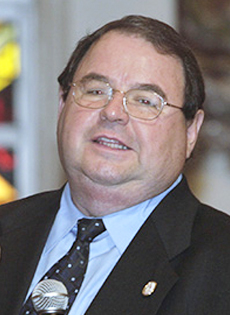
History of the Eucharistic celebration VII: The Church Fathers
Monday, March 30, 2020
*Rogelio Zelada
The freedom enjoyed by the Church allows it to grow and reach the edges of the Roman Empire; but that freedom brings with it significant errors when it comes to explaining Christological notions. Several of these theological movements took hold and forced the Church Fathers, both Greek and Latin, to formulate important theological statements. The Church is obliged to clearly specify and formulate the fundamentals of the faith.
This is the time of the great bishops: Basil of Caesarea, John Chrysostom, Gregory of Nazianzus, who wrote beautiful liturgical rituals of sound and clear theology. Rome, Alexandria, Antioch, Constantinople and Jerusalem develop rich liturgical forms that the nearby churches begin to elegantly copy.
The liturgy develops a great lavishness. The decoration of the basilicas is sumptuous; vestments and sacred vessels become authentic jewels; readings and processions multiply and it is time to move from primitive improvisation to the use of written texts approved by local synods. Among the Latin Fathers, St. Augustine strongly advocates for fixed liturgical texts and rejects improvisation, which fills the sacred liturgy with “useless talk." In his homilies, the holy bishop of Hippo reaffirms the identification of the Eucharistic body of Christ with the ecclesial body; his preaching is like an echo of John Chrysostom and the Greek Fathers: "This gathered community is also the body of Christ."
Beginning in the third century, Greek gave way to Latin as the common and popular language; the Church finally adopted it as the liturgical language starting in the fifth century. In 420, St. Jerome translated the Psalms and then the entire Bible into a popular and simple Latin that the people could understand; they would call it the "Vulgate."
The "Sanctus," an antiphon taken from Scripture, is incorporated at the beginning of the Eucharistic prayer, after the Preface, as a solemn acclamation at the beginning of the Liturgy of the Eucharist. The "Roman Canon," the liturgy of the papal chapel, which the Franciscans would extend to the whole Church centuries later, is organized and formed. The "Exultet," the hymn that sings the praises of the Easter candle, whose light is a reflection of the inexhaustible radiance of the Risen Lord, appears during the great Easter Vigil.
At the end of the bishop's homily, an important farewell rite will invite those who cannot participate in the Eucharistic banquet to leave the temple. The public sinners, who have remained kneeling in the atrium of the basilica, are dismissed first. They are followed by the pagans who, interested in the Christian faith or simply curious about the bishop's oratory ability, have come to the first part of the celebration. Then the "chosen ones" are dismissed, that is, the catechumens who will receive baptism at the next Easter, followed by the rest of the catechumens who remain in the long process of incorporation into the Church. Finally, the "energumens," those persons whose mental state or irrationality did not allow them to receive the sacraments.
In this rite, which has a certain solemnity, the bishop offers a prayer for each of these groups, to which the deacon bids farewell with an "Ite, missa est" (You may go in peace). The word "missa," which means farewell, repeated so many times, ended up being used to name the entire Eucharistic liturgy, which was then called "Mass" ("The Holy Sacrifice of the Mass").
From that moment on, only those faithful who had access to the Eucharist could remain in the temple. For this reason, the universal prayers, which offered by the deacon, are raised at that moment, will come to be known as the "Prayer of the Faithful"; that is, the prayers which, for all the needs of the Church, are presented in the form of dialogue with the assembly, when only those who can receive Communion remain. Like the homily, these prayers are closely related to the content of the Gospel. So while the "for" (for the pope, the bishops, the sick, etc.), is always the same, the other (so that they may extend the charity of Christ, etc.) must be related to the message of the Gospel for that day.

